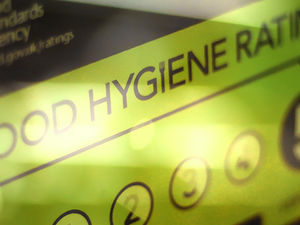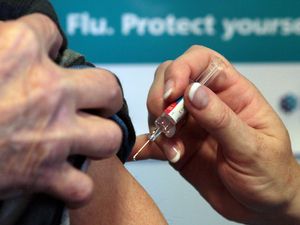Team helping people after falls helping to cut ambulance waits and hospital stays
Fire Service staff have helped hundreds of residents get back up after a fall as well as assisting dozens of patients to get home from hospital.
The Falls Response Service aims to cut ambulance waits and hospital stays by responding to residents who have fallen but not suffered any injuries.
The scheme proved so successful last year that funding was extended for another six months. The team also started a pilot scheme in December to assist the NHS in discharging patients from Royal Stoke University Hospital during the busy winter period.
A report presented to the latest Staffordshire Police, Fire and Crime Panel meeting revealed that the response team, currently based at fire stations in Newcastle and Lichfield, had helped to discharge 63 patients across Stoke-on-Trent and Staffordshire during December. It added: “It provides a discharge and settle-in service for patients identified by the Integrated Discharge Hub (IDH) and is currently operating from various wards of the Royal Stoke Hospital.
“The team will attend the hospital on request and take a patient home and settle them in, ensuring they have access to all requirements to keep them safe, eg electricity, heat, food etc, and will carry out safety checks including a Safe and Well check. The team also have the capability to transport patients in wheelchairs.”
Police, Fire and Crime Commissioner Ben Adams told the panel: “The home from hospital pilot has been running since 4th December. The latest on that is 191 times the Fire Service has helped somebody get home from hospital and only one readmission.
“That’s really helping the NHS to handle winter pressures. I’m not sure it’s going to happen after the spring because it’s particularly a winter pressure thing, but why not I would say if it’s value for money for the NHS and keeps our prevention team doing the right thing.
“The falls response service has been out to nearly 1,000 people in about 14 months – it’s tremendously successful. I’m very hopeful that the falls response provision will continue, but that’s subject to negotiation.”
Councillor Charlotte Atkins said: “I see that 85% of the fall incidents did not require further back up from the NHS, which is great. But for those 15% where it might not be sensible to move the individual, are we ensuring that there is proper training to make sure that someone is not moved, because perhaps they’ve got a broken hip or something like that?
“My second question is, given that the fire service is working much more with the NHS, what is the situation at the moment in terms of defibrillators on fire service vehicles?”
The panel was told that defibrillators were now on all front-line appliances.
Mr Adams added: “The team involved with the falls response are trained to FREC (First Response Emergency Care) Level 3 trauma and they’ve all had additional training around equipment, safeguarding and data protection before they take on the job. None of these tasks go straight to the fire service for a request for assistance without being triaged by the ambulance service.
“Occasionally they are going to get the wrong information and perhaps send somebody. But I imagine that happens anyway, they might send the wrong type of provision and I know that happens in police and fire – you get to an incident and find it’s far more serious than it was presented to you on the phone.
“My guess is with the 85% picked up with no injuries, 5% in addition to that are picked up before the falls team even get there. That 90% are probably absolutely chuffed that somebody has got them back into a good position.”





